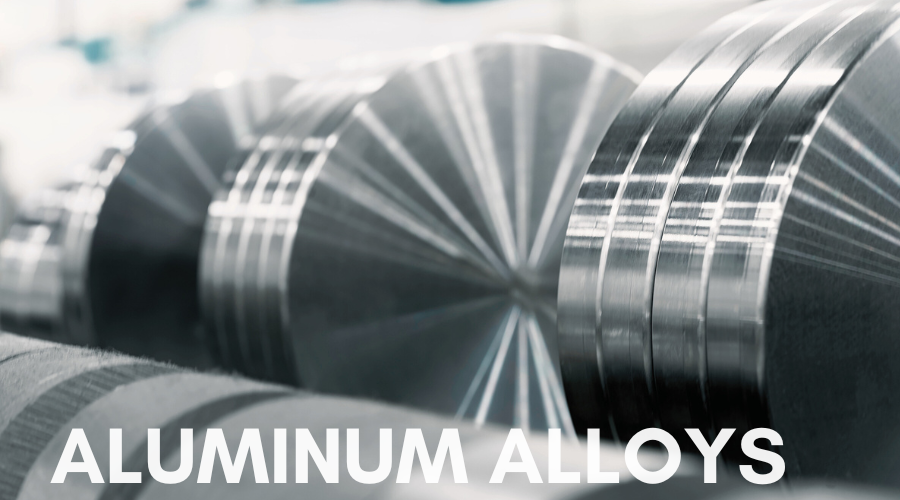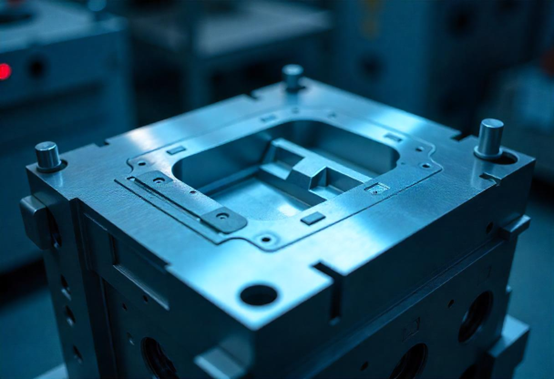Aluminum alloy is a metallic material composed of aluminum as the primary metal, combined with one or more other metallic ot non-metallic elements. These elements are added to improve the properties of pure aluminum, such as strength, corrosion resistance, and hardness. Aluminum alloys are widely used in many different industries due to their unique properties, including their lightweight, strength, and corrosion resistance. This article will provide an overview of aluminum alloys, including their definition, types and applications.

Types of aluminum extrusions
Aluminum alloys are a group of materials that are widely used in various industries due to their lightweight, strength, and corrosion resistance. The different types of aluminum alloys are designated by a four-digit numbering system established by the Aluminum Association. Understanding the different grades of aluminum alloys is important to choose the right material for a specific application.
1xxx Series Aluminum Alloys
The 1xxx series of aluminum alloys contain at least 99% pure aluminum and are known for their high electrical conductivity. These alloys are used for applications that require good thermal and electrical conductivity, such as electrical conductors, capacitors, and heat exchangers.
2xxx Series Aluminum Alloys
The 2xxx series of aluminum alloys contain copper as the main alloying element. These alloys have high strength and are commonly used in the aerospace industry, where weight reduction is critical. Alloys in this series are also used for applications that require high fatigue resistance, such as aircraft structural components.
3xxx Series Aluminum Alloys
The 3xxx series of aluminum alloys contain manganese as the main alloying element. These alloys are known for their good formability, corrosion resistance, and welding characteristics. They are used in a variety of applications, such as building and construction, automotive parts, and heat exchangers.
4xxx Series Aluminum Alloys
The 4xxx series of aluminum alloys contain silicon as the main alloying element. These alloys have low melting points and are used in welding applications. They are also used in brazing applications, where a filler metal is used to join two or more pieces of metal together.
5xxx Series Aluminum Alloys
The 5xxx series of aluminum alloys contain magnesium as the main alloying element. These alloys are known for their high corrosion resistance and are widely used in marine applications. They are also used in the automotive industry for body panels, chassis components, and other structural parts.
6xxx Series Aluminum Alloys
The 6xxx series of aluminum alloys contain magnesium and silicon as the main alloying elements. These alloys are known for their good formability, weldability, and corrosion resistance. They are commonly used in structural applications, such as the construction of buildings, bridges, and other infrastructure.
7xxx Series Aluminum Alloys
The 7xxx series of aluminum alloys contain zinc as the main alloying element. These alloys are known for their high strength and are used in applications where high strength and toughness are required, such as in the aerospace industry. They are also used in sporting goods, such as baseball bats and golf club heads.
Understanding the different types of aluminum alloys and their properties is important to choose the right material for a specific application. The selection of the appropriate aluminum alloy can result in significant cost savings, improved performance, and increased durability.

Applications Of Aluminum Alloys
Aluminum alloys are widely used in many different industries. Here are some of the common applications of aluminum alloys:
Aerospace Industry: Aluminum alloys are used extensively in the aerospace industry due to their high strength-to-weight ratio. They are used to manufacture aircraft structural components, such as wings, fuselage, and landing gear, as well as engine components and fasteners.
Automotive Industry: Aluminum alloys are used in the automotive industry to reduce weight and improve fuel efficiency. They are used to manufacture engine blocks, transmission components, wheels, and body panels.
Building and Construction: Aluminum alloys are used in building and construction for their durability, corrosion resistance, and lightweight properties. They are used in the construction of windows, doors, roofing, and siding.
Packaging Industry: Aluminum alloys are used in the packaging industry to manufacture beverage cans, food containers, and other packaging materials. Aluminum alloys are preferred over other materials because they are lightweight, easy to form, and provide excellent barrier properties.
Electrical Industry: Aluminum alloys are used in the electrical industry due to their high electrical conductivity. They are used to manufacture electrical conductors, such as wires, cables, and bus bars.
Marine Industry: Aluminum alloys are widely used in the marine industry due to their high corrosion resistance properties. They are used to manufacture boat hulls, decks, masts, and other structural components.
Sports Equipment: Aluminum alloys are used in the sports equipment industry to manufacture high-performance sporting goods such as baseball bats, golf clubs, and bicycles.
Conclusion
In conclusion, aluminum alloys are a critical material in modern industry due to their unique properties. They are produced by melting and casting metals, followed by various heat treatment processes to improve their properties. The different types of aluminum alloys are identified by a four-digit numbering system established by the Aluminum Association. Aluminum alloys are used extensively in various industries, including aerospace, automotive, building and construction, packaging, electrical, marine, and sports equipment. With ongoing research and development, aluminum alloys are likely to continue to play a significant role in modern industry, offering endless possibilities for innovative applications.
-q4gvl4k29y4hq8j9rjpapvj0ft06fje63olt7p210i.png)


